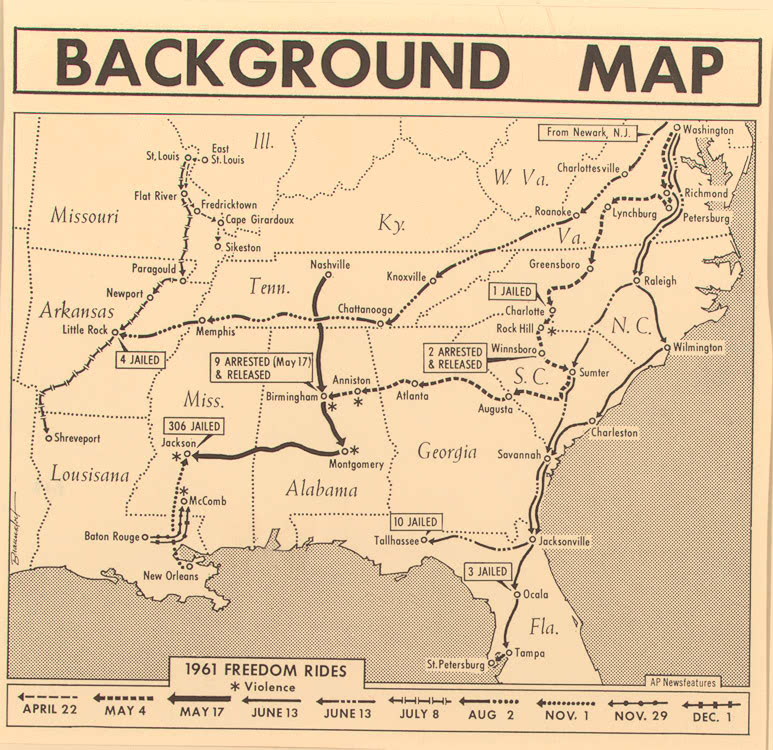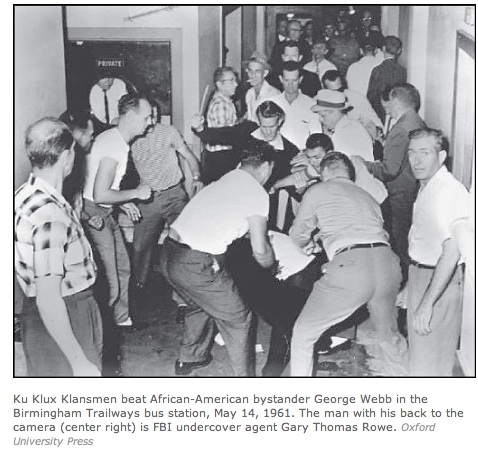
FRESH AIR
![]() In 1961, an integrated group of self-proclaimed “Freedom Riders” challenged segregation by riding together on segregated buses through the Deep South. They demanded unrestricted access to the buses — as well as to terminal restaurants and waiting rooms — but pledged nonviolence.
In 1961, an integrated group of self-proclaimed “Freedom Riders” challenged segregation by riding together on segregated buses through the Deep South. They demanded unrestricted access to the buses — as well as to terminal restaurants and waiting rooms — but pledged nonviolence.
Despite being backed by recent federal rulings declaring it unconstitutional to segregate bus riders, the Freedom Riders met with obstinate resistance, even by hatred and violence — as in Birmingham and Montgomery, Ala, where white supremacists attacked bus depots themselves. Local police often refused to intervene, but still the Freedom Riders kept to their pledge of nonviolence — and their efforts transformed the civil rights movement.
Historian Raymond Arsenault documents their journey in Freedom Riders: 1961 and the Struggle for Racial Justice, detailing how the first Freedom Rides developed, from the personal level to the legal maneuvering involved. His narrative touches on elements from the jails of Alabama to the Kennedy White House. The book is now out in paperback.
Justice, detailing how the first Freedom Rides developed, from the personal level to the legal maneuvering involved. His narrative touches on elements from the jails of Alabama to the Kennedy White House. The book is now out in paperback.
Arsenault is the John Hope Franklin Professor of Southern History at the University of South Florida in St. Petersburg, and co-director of the university’s Florida Studies Program. His previous books include Land of Sunshine, State of Dreams: A Social History of Modern Florida and Crucible of Liberty: 200 Years of the Bill of Rights, which he edited.
